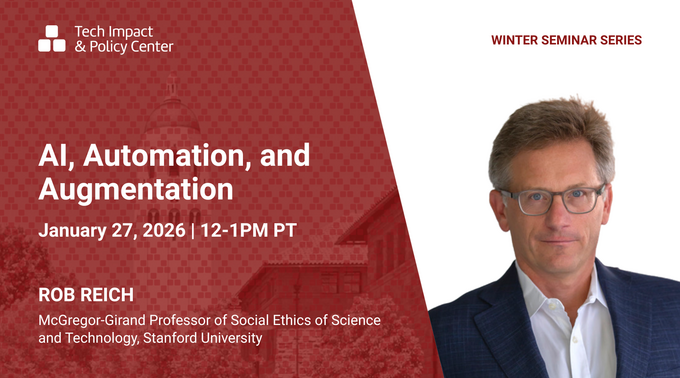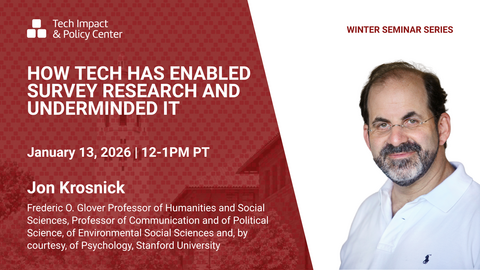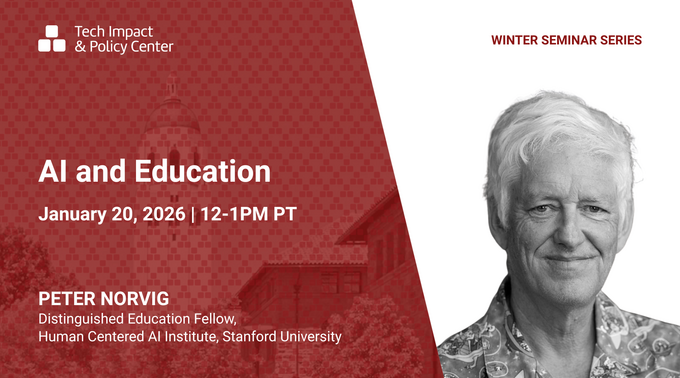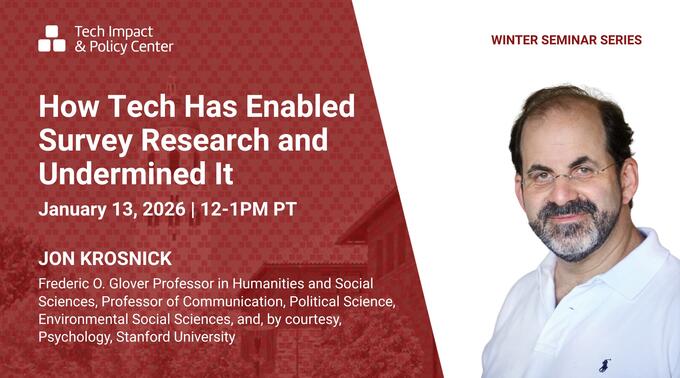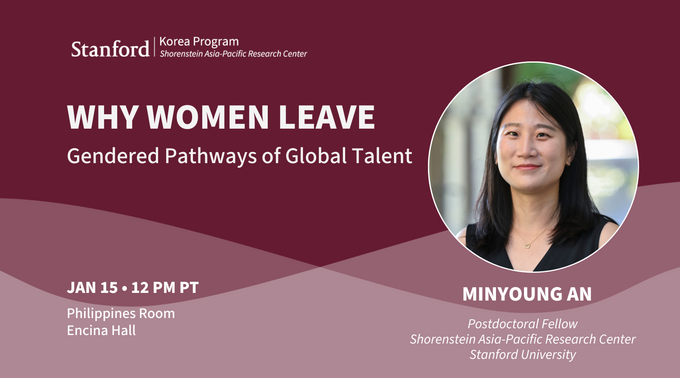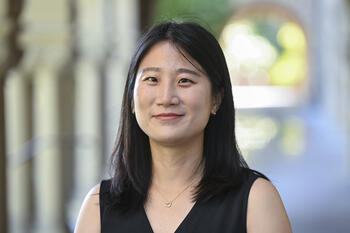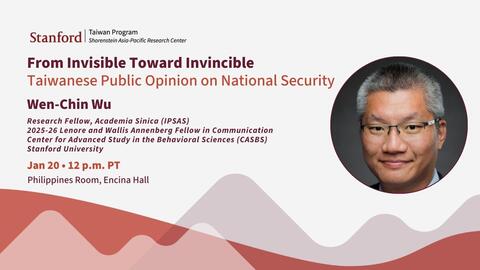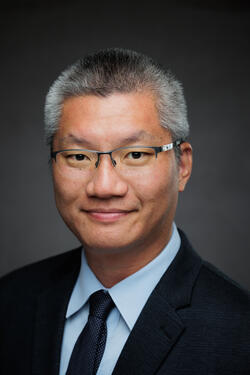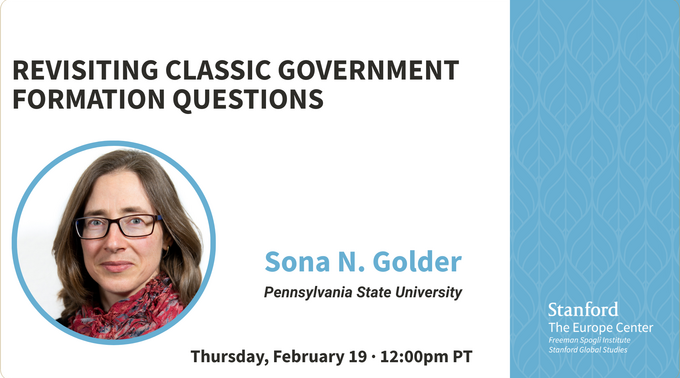Guilherme Lichand | The Educational Impacts of School Phone Bans
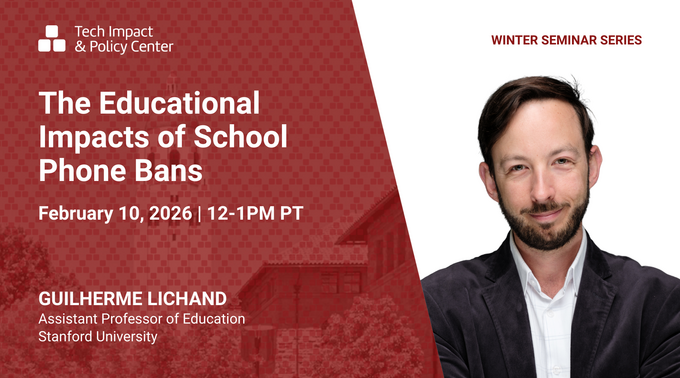
Join the Tech Impact and Policy Center on February 10th from 12PM–1PM Pacific for a seminar with Guilherme Lichand.
Stanford affiliates are invited to join us at 11:40 AM for lunch, prior to the seminar. The Winter Seminar Series continues through March; see our Winter Seminar Series page for speakers and topics. Sign up for our newsletter for announcements.
About the Seminar:
A rapidly expanding literature documents the detrimental effects of excessive cell phone use, particularly on mental health outcomes and attention. While nearly all studies focus on adult populations, many experts have used them to support phone bans in schools – partially in the hope that these might help reverse declining trends in standardized test scores dating from even before the Covid-19 pandemic. This paper provides first-hand evidence that phone restrictions in schools indeed causally boost K–12 learning outcomes. Leveraging the introduction of a policy that banned non-pedagogical uses of cell phones within schools in Rio de Janeiro, Brazil, we contrast schools that already had strict rules on phone use even before the policy (the control group) to all other schools (the treatment group), before and after the ban. We find that, 1.5 year after roll-out, (1) the prevalence of high-usage schools converged across groups; and (2) standardized test scores significantly increased in treatment schools, relative to control: in the former, students learned 0.06 s.d. more – enough to fully eliminate the baseline gap in test scores across groups.
About the Speaker:
Guilherme is an Assistant Professor of Education at Stanford, co-Director at the Stanford Lemann Center for Entrepreneurship and Educational Innovation in Brazil, and a faculty affiliate at the Stanford King Center for Global Development, the Stanford Center on Early Childhood, the Stanford Institute for Advancing Just Societies, and the UC Berkeley Center for Effective Global Action. He holds a PhD in Political Economy and Government from Harvard University. Previously, he was the UNICEF professor of Economics and Child Wellbeing and Development at the University of Zurich. Guilherme was recognized by the Schwab Foundation and Folha de São Paulo as Brazil's top-10 social entrepreneur (post-pandemic legacy), in 2020, and by MIT Technology Review as Brazil's top social innovator among under-35 entrepreneurs, in 2014. He is also an expert in social innovation at the World Economic Forum Expert Network.
McClatchy Hall, S40 Studio
450 Serra Mall, Stanford, CA 94305
For those attending the in-person seminar, please bring your Stanford ID card/mobile ID to enter the building.
Evidence from Brazil

